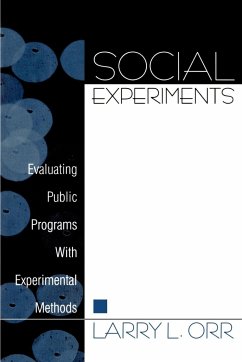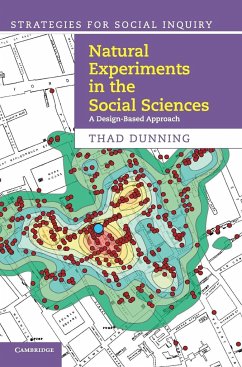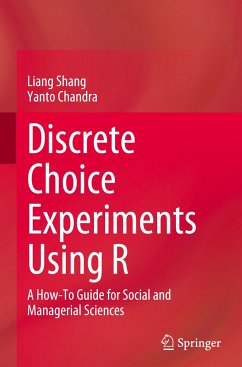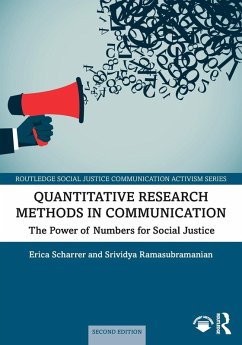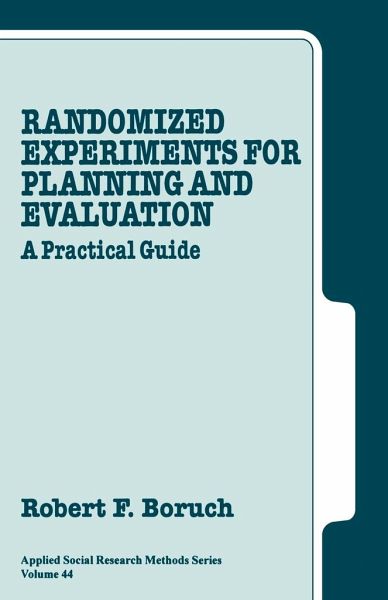
Randomized Experiments for Planning and Evaluation
A Practical Guide
Herausgeber: Boruch, Robert F.
Versandkostenfrei!
Versandfertig in 1-2 Wochen
94,99 €
inkl. MwSt.

PAYBACK Punkte
47 °P sammeln!
How can one tell if a new programme has been effective or not? Is there any way to predict how a group of individuals would have fared without the new programme or service? Packed with rich and varied examples, Robert F Boruch's book untangles the complexities of randomized field experiments to enable researchers to evaluate better the impact of new programmes. After an exploration of how to judge whether or not a programme worked, the author discusses: the context of experiments; the standards used to judge the ethical propriety of randomized experiments; methods for studying populations; sam...
How can one tell if a new programme has been effective or not? Is there any way to predict how a group of individuals would have fared without the new programme or service? Packed with rich and varied examples, Robert F Boruch's book untangles the complexities of randomized field experiments to enable researchers to evaluate better the impact of new programmes. After an exploration of how to judge whether or not a programme worked, the author discusses: the context of experiments; the standards used to judge the ethical propriety of randomized experiments; methods for studying populations; sampling methods; the randomization procedure; baseline measures; missing data registry; and analyses for quality assurance.





